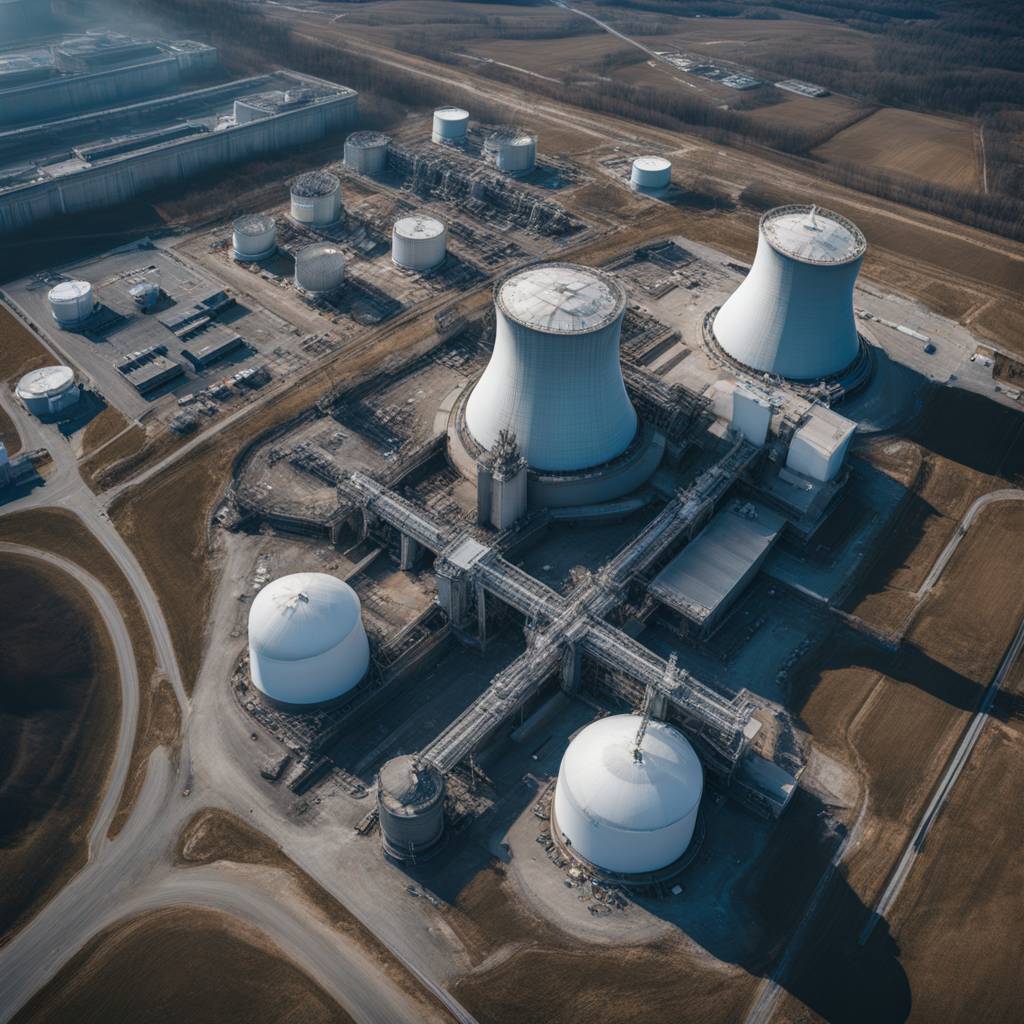The Director General of the U.N. International Atomic Energy Agency has strongly condemned the recent drone strikes at the Zaporizhzhia Nuclear Power Plant, stating that such attacks pose a significant risk of a major nuclear accident and must be stopped immediately. The attacks, which involved at least three drones detonating at the plant, caused scorch marks on the roof of the containment building housing one of the plant’s six nuclear reactors. The facility, located near the frontline of the conflict in Ukraine, has been a source of concern since the start of the war, and is now under Russian military occupation.
Experts from the U.N. agency reported hearing explosions and rifle fire at the site, as well as rounds of outgoing artillery fire from near the plant. While there were no indications of damage to critical nuclear safety or security systems, inspectors observed minor superficial scorching to the top of the reactor dome roof of one unit. This marks the first time the facility was directly targeted in military action since November 2022, signaling a major escalation of nuclear safety and security dangers. The agency’s inspectors witnessed Russian troops engaging an approaching drone, leading to an explosion near the reactor building.
Moscow’s envoy to the I.A.E.A. blamed Ukrainian forces for the attack, while Ukraine denied the claims and accused Russia of staging a “false-flag” attack to undermine international support. Since the plant has been under Russian military occupation for more than two years, it has seen a campaign of abuse and intimidation directed at Ukrainian employees. Mines have been found on the perimeter of the plant, and Ukrainian civilians living nearby have reported that the Russians use the facility as cover to launch attacks, knowing that Ukraine will be limited in its response to avoid risking nuclear safety.
Despite all six reactors at the plant being shut down, they still require power and water to circulate in their cores to prevent a meltdown. Concerns have been raised about the deteriorating equipment, as well as the lack of qualified personnel due to the forced use of unqualified staff from Russian nuclear power plants. The plant has experienced multiple blackouts, necessitating the use of diesel generators to keep critical safety equipment functioning. There is also a growing risk of human error due to the tense state of personnel related to the occupation of the plant and the town of Energodar, where the plant is located.
The risk of more capable drones causing significant damage to the plant’s infrastructure is a major concern, as noted by a physicist and director of nuclear power safety with the Union of Concerned Scientists. The ongoing deterioration of equipment and increasing risk of human error create a precarious situation at the Zaporizhzhia Nuclear Power Plant. It remains to be seen how the international community will respond to these alarming developments and work towards ensuring the safety and security of the facility amidst the ongoing conflict in Ukraine.


